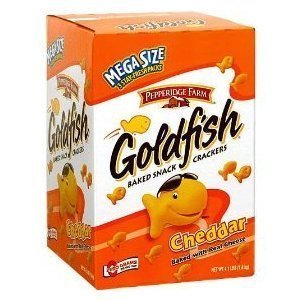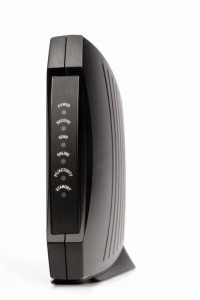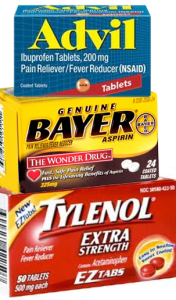 Top Class Action Lawsuits
Top Class Action Lawsuits
Ploys R Us? Toy retail giant Toys R Us, Inc, got hit with a potential consumer fraud class action lawsuit by an angry customer who feels he was duped over the Thanksgiving weekend. Essentially, the lawsuit alleges engaged in a Toys R Us bait-and-switch scheme that lured in online shoppers with offers of valuable free gifts that turned out be small or non-existent.
Naughty, naughty!
The backstory: William Probert, (who filed the lawsuit), claims he was lured to the Toys R Us website to purchase four Lego building sets, worth $62 and $112 each, based on an ad promising he would receive $15 Lego building set as a free gift with purchase. Instead, Probert was offered a $5 Christmas tree figurine and a $5 magnet.
The short version on the allegations: that Toys R Us used misleading sales tactics which included promising customers free gifts like a $15 Barbie clothing outfit when they purchased a $75 Barbie Doll. However, most shoppers received much cheaper incentive gifts because the company either stocked an “exceedingly limited” number of the advertised free gifts or had no intention of giving expensive gifts.
Specifically, the Toys R Us lawsuit states, “Under this business model, consumers almost always receive a ‘free gift’ of substantially lesser value than what was advertised and which served as the basis of the bargain, or no ‘free gift’ whatsoever.” And, “This business practice, thus, constitutes a modern ‘bait and switch’ scheme. Toys R Us does not honor its promises to provide the promised free gift, and indeed never intended to honor its promises.”
Statin Trouble. Heads up anyone taking Atorvastatin (generic Lipitor) manufactured and sold by Ranbaxy Pharmaceuticals. A consumer fraud class action lawsuit has been filed in the United States District Court, District of New Jersey on behalf of a class of all purchasers of certain bottles of Atorvastatin (generic Lipitor) that were manufactured and sold by Ranbaxy Pharmaceuticals, Inc. (Read more on the generic Lipitor class action lawsuit here.)
In case you missed it—which was easily done by the way—the pharmaceutical company recently conducted a limited, voluntary recall of Atorvastatin calcium tablets, (generic Lipitor). The retail-only recall concerns its 10mg, 20mg and 40mg dosage strengths, packaged in 90’s and 500 count bottles and only with respect to certain select lot numbers. Ranbaxy admitted that the product contained glass particles.
The lawsuit alleges that the defendants manufactured and sold a dangerous and defective product, violated consumer fraud laws, and otherwise acted improperly with respect to the tainted Atorvastatin. For example, when Ranbaxy learned that their product was tainted, Ranbaxy conducted a recall but it was only at the retail level. The recall by Ranbaxy did not include a notice to consumers who purchased the tainted product as to what they should do with the tainted product or what they should do if they ingested it. The limited recall also did not include a notice to consumers or retail pharmacies about how the consumers could obtain a refund of the money paid for the product. In fact, Ranbaxy has not offered a refund to consumers.
The class action seeks a total product recall, with notice to consumers about the tainted product. The lawsuit also seeks a refund of the money paid for the product. Hey Ho!
Top Settlements
Lucky Brand Jeans—Not So Lucky? Possibly not. A federal judge has preliminarily approved a $9.9 million settlement of a class action lawsuit filed against Lucky Brand Dungarees, Inc. and its marketing subcontractors. The Lucky Brand lawsuit alleged the clothing company was in violation of the Telephone Consumer Protection Act (TCPA) because it sent unsolicited text spam as part of a 2008 back-to-school promotion.
The lawsuit, entitled Robles v. Lucky Brand Dungarees, Inc., Case No. 10-cv-4846, was filed by Juvenal Robles in October 2010, who represents an estimated 216,000 class members, all of whom may be eligible to receive up to $100 per claimant if the settlement receives final court approval.
The lawsuit claimed that Lucky Brand sent unsolicited spam texts to thousands of customers’ cellphones. Those messages offered $25 off Lucky jeans or offering store location services to consumers that responded with their ZIP codes.
According to the lawsuit, the Federal Telephone Consumer Protection Act (TCPA) prohibits companies from contacting people on their mobile phones by using an “automatic telephone dialing system” or using “an artificial or prerecorded voice” without their prior express consent. Some courts have even applied the TCPA to unsolicited text messages, or “text spam.”
Eligible class members include consumers that received the Lucky Brand text spam between August 24 and September 15, 2008. Further details on the preliminary settlement have not been made public.
And on that note—I’ll see you at the bar. Have a great weekend!




